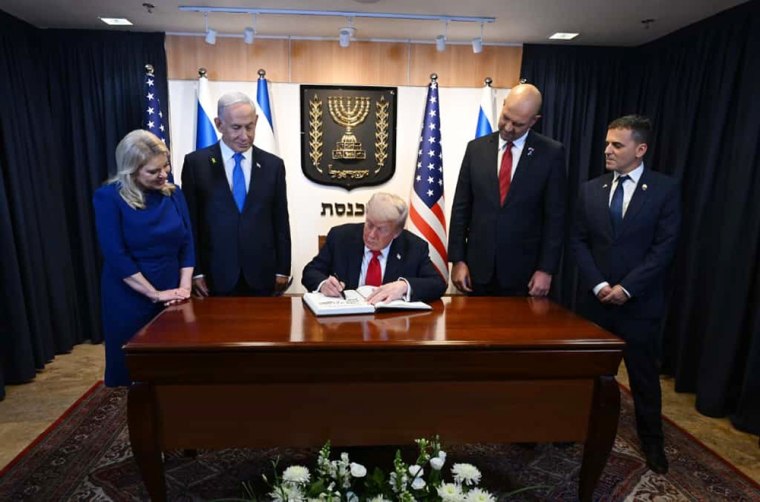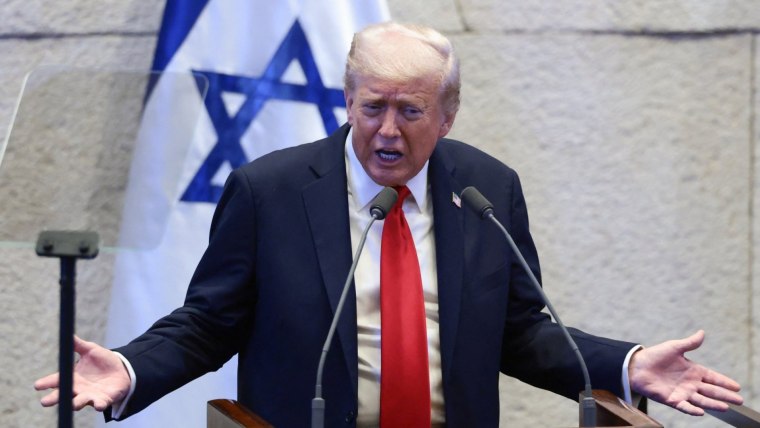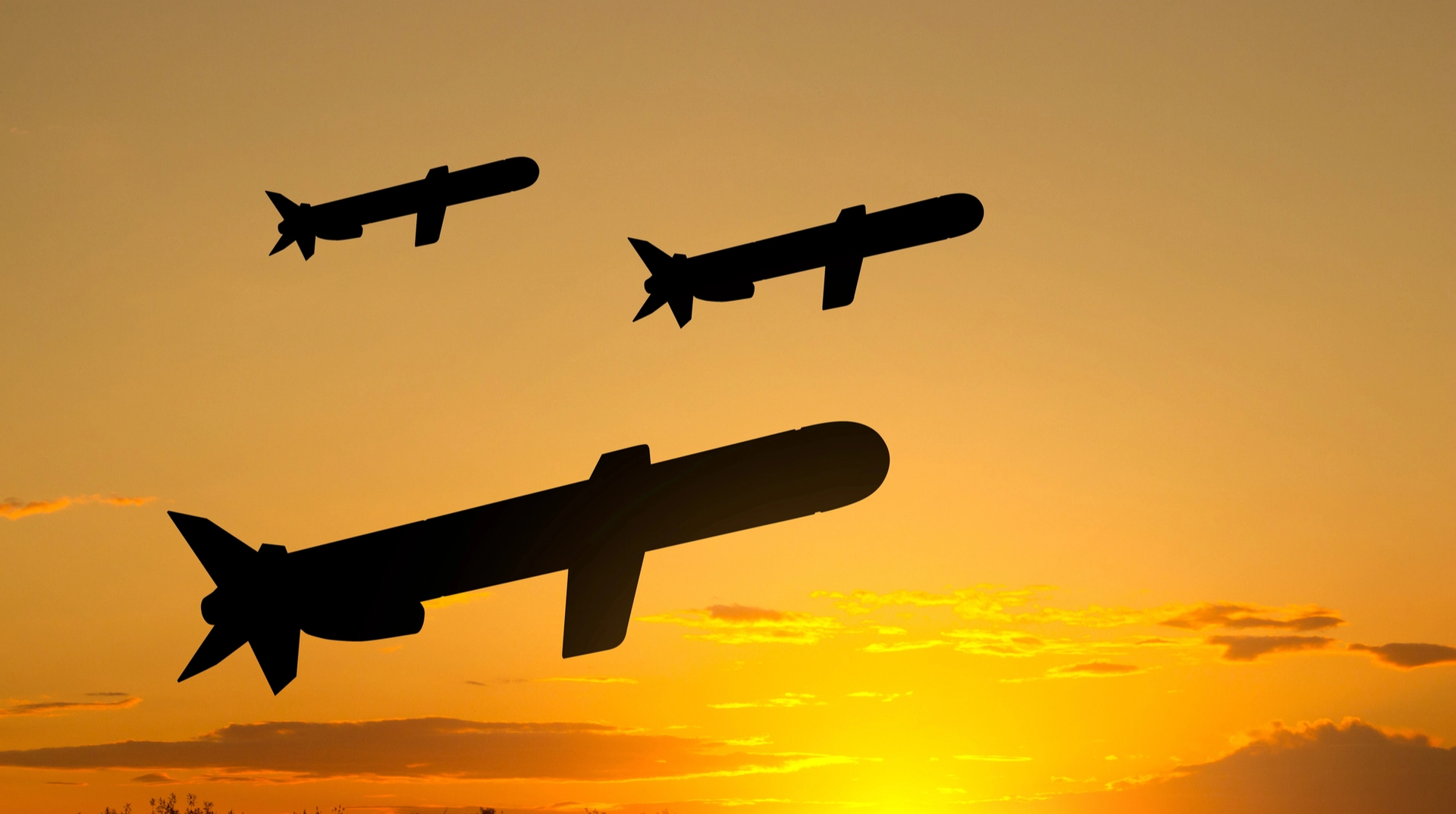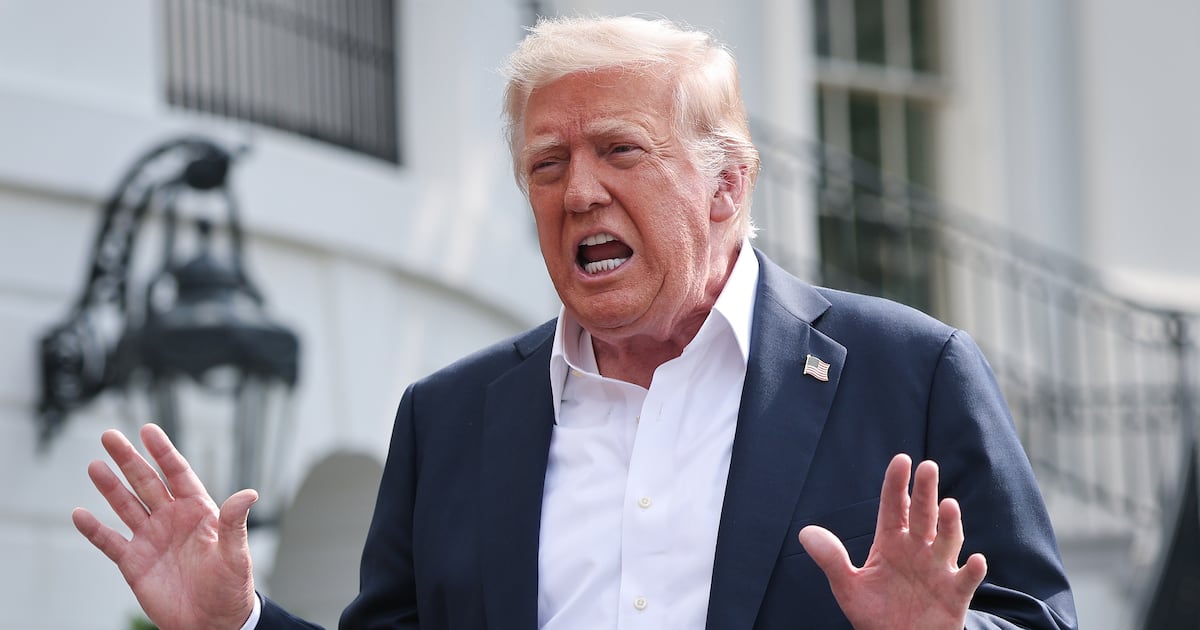WASHINGTON — A jubilant Donald Trump celebrated a hard-won ceasefire Monday in the conflict between Israel and Hamas militants, while inviting Middle East leaders to create a lasting peace that unlocks the region’s potential for dramatic economic growth.
As all 20 living hostages rejoined their families in Israel, Trump spoke to the nation’s parliament in Jerusalem and marked a momentous breakthrough in a war that began just over two years ago.
The U.S. president who wrung a peace deal from bitter combatants told the Knesset that “the long and painful nightmare is finally over.”
“This is not only the end of a war,” said Trump, who had arrived in Israel in the morning. “This is the end of an age of terror and death and the beginning of the age of faith and hope and of God.
“It’s the start of a grand concord and lasting harmony for Israel and all the nations of what will soon be a truly magnificent region.”
Making it so won’t be easy. Old antagonisms could resurface at any point, jeopardizing the truce that Trump and his advisers brokered over the past few months.
An accusation of bad faith came right away. Family members said Monday that Hamas had released the remains of only four of 28 deceased hostages, breaking a commitment. They called for an “immediate suspension” of the ceasefire agreement until all the bodies are returned.
Dueling statements from Trump and Israeli Prime Minister Benjamin Netanyahu also suggested they differed over something as fundamental as whether the fighting was truly over.
Netanyahu, speaking on television Sunday, said, “The campaign is not over” and that “some of our enemies are trying to recover in order to attack us again.”
Asked about that on Air Force One en route to Israel, Trump told reporters: “The war is over. The war is over. The war is over, OK? You understand that?” Lest there be any doubt, Trump reinforced the point during his remarks to the Knesset while Netanyahu sat and listened.
“Now you can be a little nicer, Bibi, because you’re not at war anymore, Bibi,” he said, using Netanyahu’s nickname.
After finishing his speech, Trump flew to Egypt to take part in a peace conference with the leaders of 20 nations, posing for pictures in front of a sign proclaiming, “Peace in the Middle East.”

Notably missing from the signing ceremony were the two parties who’d been at war: Hamas and Israel. Trump had invited Netanyahu to the ceremony in Sharm el-Sheikh, but the Israeli leader chose not to attend. His office cited the Jewish holiday of Simchat Torah as the reason. Without Netanyahu and a representative from Hamas, the day lacked what often turns out to be an iconic picture at such Middle East peace ceremonies: the U.S. president and the combatants linking arms.
“It’s an extraordinary moment and demonstration of will by an American president: a bid to end the Israeli-Hamas war in Gaza,” Aaron David Miller, a former State Department Middle East analyst and negotiator in Republican and Democratic administrations, said in an interview. “But to do that you need to climb several very high mountains.”
Richard Goldberg, who served on the White House National Security Council in Trump’s first term, wrote on X: “Today is a celebration. Trump and Netanyahu delivered the opportunity for peace through strength.”
“Tomorrow is harder,” he added. “Words like demilitarizing, disarming and de-radicalizing are just words without action. Every step will be filled with pitfalls. Every step will be contested by forces that do not support the Trump vision for peace. By Iran. By the Muslim Brotherhood. By the U.N. By others.”

As for the future, the Trump administration appears to have less of a blueprint than an aspiration. Last month, Trump released a 20-point peace plan that starts with ending the war in Gaza and ends with forging a broader peace between Israel and the Palestinians.
The first part is specific; the latter, vague. The 19th point says that certain conditions that include reconstruction of Gaza and political reform must be met and then, once that happens, “the conditions may finally be in place for a credible pathway to Palestinian self-determination and statehood.” The authors set no hard deadlines or timetables for deciding the Palestinians’ fate.
At home, Trump is enmeshed in a government shutdown with no end in sight. But presidents enjoy far more latitude when it comes to foreign policy, and Trump appears to be savoring his achievement overseas.
A senior administration official traveling with Trump on the quick trip to Israel and Egypt said of the president’s mood: “I’m not sure I’ve ever seen him so proud.”
Another official, back in Washington, said: “Everyone is taking great pride in it and wants to be part of it. And it’s an acute reminder that we can do the hard things.”
Trump tapped two confidants to negotiate the deal: his son-in-law Jared Kushner and White House envoy Steve Witkoff, a billionaire real estate developer. Both watched in the Knesset as Trump delivered an hour-long speech, relishing the moment and riffing in ways that made members laugh and applaud in surprise.
“Trump! Trump! Trump,” lawmakers chanted. Some wore his signature piece of campaign memorabilia, a red hat with a twist that read: “Trump, the Peace President.”
Seizing on the good will, Trump made a personal plea to help a friend. Netanyahu is facing trial on corruption charges. Trump went off script to beseech Israeli President Isaac Herzog to pardon the prime minister.
“This man is a good man right here. I have an idea. Mr. President, why don’t you give him a pardon?” Trump said.
Now that the fighting has stopped and the hostages have been returned, Trump’s interest could potentially wane. As the leader with the most leverage in the region, Trump needs to stay involved to make progress on his vision of a transformed Middle East, foreign policy analysts said.
For Trump, there is at least one clear incentive to stay engaged.
He lost out on the 2025 Nobel Peace Prize last week, and his supporters are already lobbying for him to get the award next year.
“You have to wonder whether he stays with this,” Miller, the former negotiator, said. “That will depend primarily on whether there’s a pot of gold at the end of the rainbow: the elusive Nobel, which he believes he deserves.”


